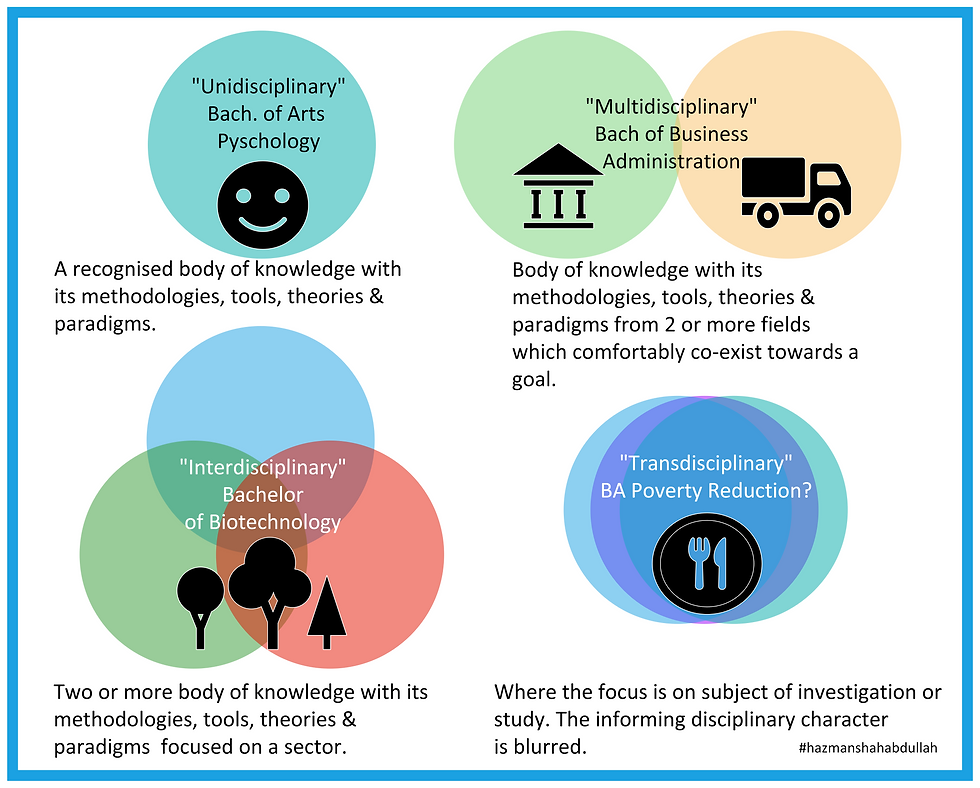What is the body of knowledge these days?
- Hazman Shah Abdullah

- Dec 22, 2020
- 1 min read
Faculties and departments are, in the main, neatly organised along traditional disciplinary lines. The body of knowledge expected at various levels of studies in a field is the basis of programme standards or benchmarks. The inhabitants of universities are staunchly discipline driven animals. This is reflected in the curriculum making and the recognition of qualifications. Many profession or practice driven curricula are seen with suspicion, and not accorded the same recognition. Is old religion is losing its hold?
Programmes are becoming more multi-disciplinary or just double majors - economics and finance, business and finance, law and finance, engineering management etc. reflecting the eclectic nature of practice or work. It has become more challenging to formulate the body of knowledge in this hybridized curricula. Programme standards and subject benchmarks have less to offer to these multi-disciplinary programmes. Somehow knowledge diversity is the in thing.
In response to WEF's future forecasts, universities are marrying STEM with humanities to create STE-Arts-M! Go figure the body of knowledge for arts and science degrees! The disciplinary consensus is fraying with the rise of the multi and inter-disciplinary programmes. Neither the university nor the QA bodies can judge the programmes the way they used to. It is now very experimental. To add to the anxiety, trans-disciplinary programmes are advocated - one that denies and defies disciplinary terms. QA bodies aren't really sure how to deal with this primordial question - body of knowledge! QA bodies are smartly leaving it to the universities to figure it out.



Comments